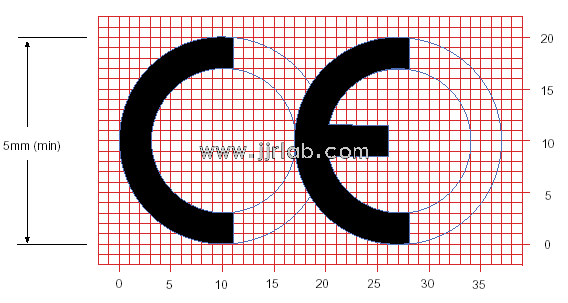
What Tests are Required for CE Certification of Household Appliances?
CE certification for Household Appliances:
CE certification is a mark of conformity within the European Union (European Conformity). It is a self-declaration by the manufacturer that their product meets EU legal requirements. The CE mark indicates that the product complies with essential EU safety standards, acting as a mandatory certification mark for products entering the European market, essentially serving as a "passport" to the European market.
For household appliances, CE certification standards are comprised of various technical specifications and guidelines set by the EU, covering aspects such as safety, environmental protection, electromagnetic compatibility, and health. The specific CE certification standards will vary depending on the type, function, and characteristics of the household appliance.

emc testing Items:
1. Terminal disturbance voltage
2. Disturbance power
3. Radiated disturbance
4. Harmonic current
5. Voltage fluctuations and flicker
6. Electrostatic discharge immunity
7. Electrical fast transient/burst immunity
8. Surge immunity
9. Voltage dips and short interruptions immunity
10. Continuous disturbance
11. Radiated RF electromagnetic field immunity
12. Conducted RF field immunity
Safety Testing Items:
1. Marking and instructions
2. Protection against access to live parts
3. Starting of motor-operated appliances
4. Input power and current
5. Heating
6. Leakage current and electric strength at operating temperature
7. Moisture resistance
8. Leakage current and electric strength
9. Overload protection of transformers and associated circuits
10. Durability
Wireless RED RF Testing Items:
1. Output power, duty cycle, transmission sequence, transmission gap, medium utilization
2. Power spectral density
3. AccumULated transmit time, frequency occupancy time, and modulation sequence
4. Modulation channel spacing
5. Adaptivity
6. Occupied bandwidth
7. Out-of-band emissions
8. Transmitter spurious emissions
9. Receiver spurious emissions
10. Blocking
Other Requirements:
- If the household appliance has wireless functions (such as Bluetooth, WiFi), it needs to undergo wireless red directive testing. Example testing standards include:
- EN 300328 for BT WiFi (2.4G)
- EN 301893, EN 300 440 for WiFi (5G)
- If it contains an internal battery, the battery needs an iec 62133 test report.
- If it is a portable device or intended for fixed installation, WiFi power less than 20mW, BT requires SAR assessment.
CE Certification Timeline and Sample Requirements for Household Appliances:
- For appliances without wireless functions, the timeline is 7 working days, and 2 complete units are required as samples.
- For appliances with wireless functions, the timeline is 2-3 weeks, and 3 complete units plus 1 fixed frequency sample unit are required.
Documentation Required for CE Certification of Household Appliances:
1. Application form
2. Instruction manual
3. Circuit diagram
4. Structural diagram
5. List of components
6. Fixed frequency software and operation instructions (for wireless function appliances)
JJR Laboratory in China is an IEC 17025 accredited lab providing EU CE certification, E-mark certification, UKCA certification, ROHS certification, REACH certification, and other services. Feel free to request a quote; we can help you save 30% on certification costs.
Email:hello@jjrlab.com
Write your message here and send it to us
 EMC Item – Introduction to Radiated Emission Test
EMC Item – Introduction to Radiated Emission Test
 IEC 62471 Photobiological Safety of Lamps and Lamp
IEC 62471 Photobiological Safety of Lamps and Lamp
 New European Toy Standard EN 71-1:2026
New European Toy Standard EN 71-1:2026
 EN71 Series Standards Compliance February 13, 2026
EN71 Series Standards Compliance February 13, 2026
 European Toy Safety Standard EN 71-20:2025
European Toy Safety Standard EN 71-20:2025
 EN 18031 Certification for Connected Devices on Am
EN 18031 Certification for Connected Devices on Am
 Compliance Guide for Portable Batteries on Amazon
Compliance Guide for Portable Batteries on Amazon
 2026 EU SVHC Candidate List (253 Substances)
2026 EU SVHC Candidate List (253 Substances)
Leave us a message
24-hour online customer service at any time to respond, so that you worry!




